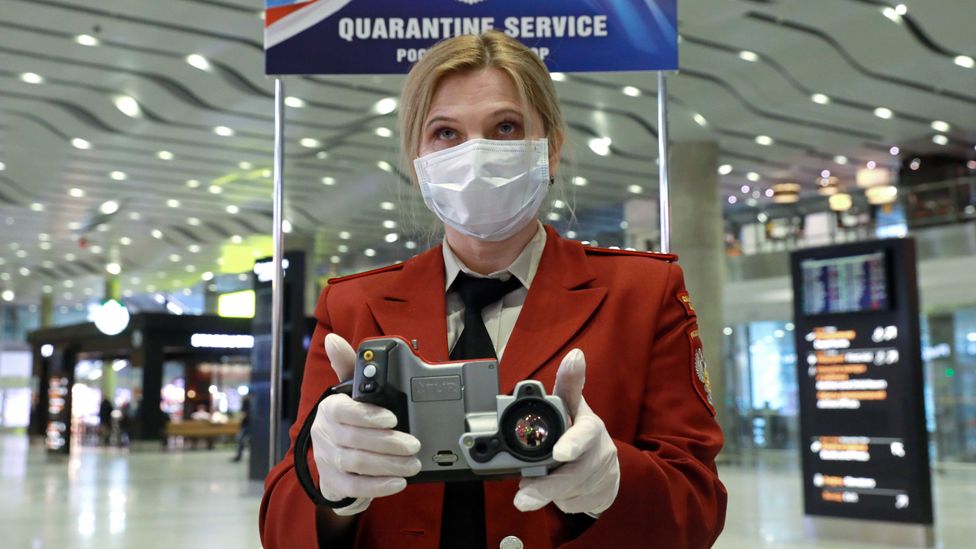

In a world where state governments wield emergency powers like a superhero's cape, one can't help but wonder: Are these powers truly meant to protect us, or have they become a playground for political power games? The latest antics from governors like Michelle Grisham and Josh Green might just make you raise an eyebrow. Are they safeguarding our well-being, or is it all just a convenient power trip? More on this below. Keep reading.
In the midst of the COVID-19 pandemic, questions swirled around how the federal government would respond to the crisis declared a national health emergency. What kind of powers would they claim to have, and which constitutional rights would they attempt to suppress? However, what many Americans did not consider was the implementation of emergency powers by state governments rather than the White House.
The Dominance of State Mandates
Surprisingly, most of the COVID-19 mandates that had a significant impact on the US economy during that tumultuous period were not federal mandates, but state-level directives. There's a compelling reason why COVID-19 measures primarily targeted state governments.
Challenges at the Federal Level
Enforcing mandates at the federal level comes with several requirements and obstacles for any president. Federal declarations of emergencies require adherence to legal checks and balances, although these safeguards have been gradually eroded over the years.
The Power of State Governors
In contrast, state governors in 44 states possess sweeping authority under emergency conditions, often with little immediate legal recourse. Recent events in states like Hawaii and New Mexico have shed light on the potential dangers of unchecked state-level emergency controls.
Hawaii's Catastrophic Misstep
In Hawaii, the exploitation of state emergency provisions under Governor Josh Green led to tragic consequences. Thousands of lives were put at risk as the government refused to release vital water supplies for firefighting efforts. The situation escalated as Maui residents were forced back into the blaze, and news organizations were denied access to the disaster scene. One must question whether this was an act of negligence or a deliberate test of citizens' tolerance for government overreach.
New Mexico's Controversial Measures
New Mexico presents a similar case of extreme overreach, as Governor Michelle Grisham attempted to assert authority over the Second Amendment rights of Albuquerque residents due to rising crime rates. Her convoluted arguments in favor of banning lawful open carry and concealed carry protections reveal an ideological agenda rather than a genuine concern for public safety.
The Flawed Logic
Grisham's core argument is alarmingly simple: "I am banning legal firearms carry in Albuquerque because, under emergency powers, I can." However, this argument is fundamentally flawed for several reasons.
Blaming Inanimate Objects
Firstly, crime rates have been rising across the nation, particularly in Democrat-controlled cities. Instead of taking responsibility for their policies, Democratic leaders often resort to scapegoating inanimate objects, such as guns, and punishing law-abiding citizens for their rights.
Ineffectiveness of Restrictions
Secondly, restrictions on open carry and concealed carry are unlikely to reduce the crime rate, as criminals disregard laws and emergency powers. Disarming law-abiding citizens may only embolden criminals.
Ambiguous Emergency
Thirdly, Grisham fails to provide concrete evidence of a legitimate emergency beyond stating that "crime is bad right now." This ambiguity leaves room for the continuous renewal of emergency restrictions unless citizens take a stand.
Totalitarian Tendencies
Fourthly, the focus on open carry and concealed carry appears to be a calculated step toward increased government control. Authoritarians often institute control incrementally, chipping away at rights one piece at a time.
Bypassing Legislative Processes
Fifthly, gun carry laws are typically legislative decisions requiring public votes. Grisham's attempt to bypass these checks and balances undermines the democratic process.
Unconstitutionality of Emergency Powers
Sixthly, history has shown that emergency powers are often declared unconstitutional by courts after the fact. For example, Michigan's Supreme Court deemed Governor Whitmer's use of emergency powers during the COVID-19 pandemic unconstitutional. However, such court decisions come too late to prevent the harm done.
Misuse of Public Health Terminology
Seventhly, Grisham's assertion that rising crime is a "public health emergency" is a misuse of terminology meant for health crises, not legal matters. Disarming the public goes beyond the scope of a health emergency, highlighting her overreach.
My Hot Take: It seems like the only emergency we're facing is the growing need for politicians to remember who they work for. Perhaps they should add "How to Serve the Public" to their emergency power manuals. But hey, who needs logical reasoning when you have emergency powers at your disposal, right?
In the cold, unforgiving corridors of European power, the future of Ukraine is being carved…
In the eerie stillness of a gray Moscow morning, death came cloaked in fire and…
The air is thick with tension, and behind the polished smiles of politicians lies a…
In classic Trump fashion, big promises are back on the menu—this time, it’s peace in…
As millions lit candles and whispered prayers for peace this Easter, a storm of violence…
It turns out Americans are a bit torn when it comes to how they feel…